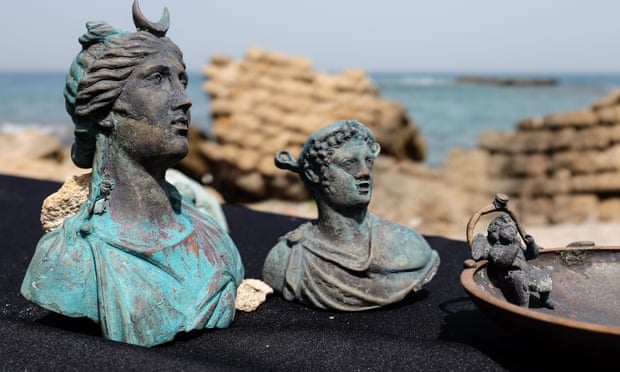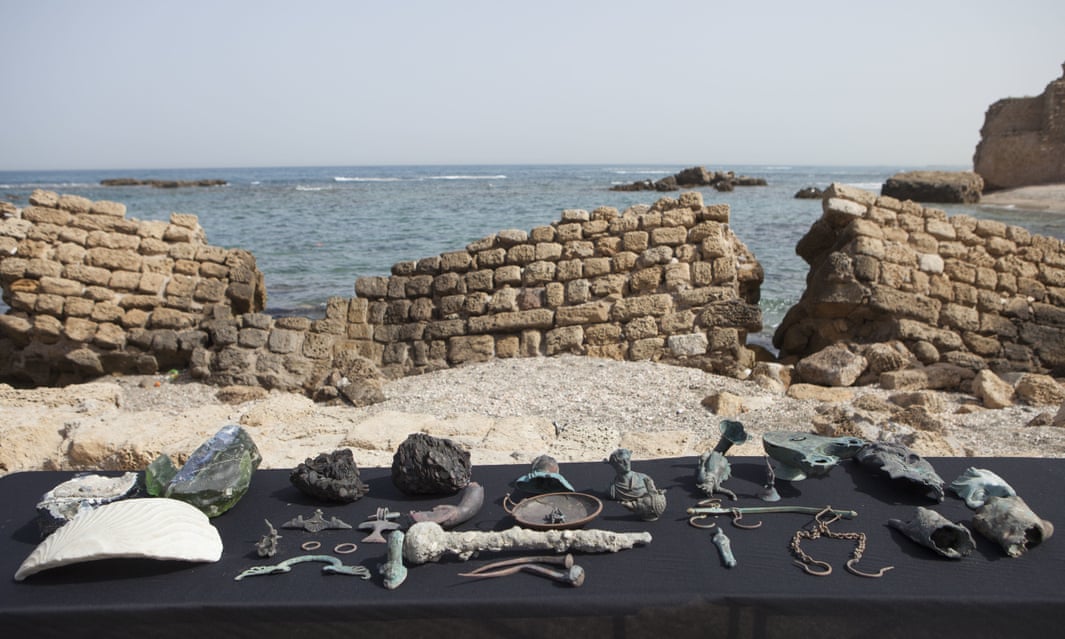
The treasures were found in April by Ran Feinstein and Ofer Raanan when they were exploring a sunken ship close to the ancient port of Caesarea.
They initially left the first sculpture on the seabed, but then when they discovered a second, they realised it was something special and brought it to the surface. They later searched the area and uncovered more.
To their credit, they informed the Israel Antiquities Authority (IAA) who sent their divers to investigate further.
Some of the objects date back to the fourth century CE, while others are from the first and second centuries, said Jacob Sharvit, the director of marine archaeology at the IAA.
Sharvit said it was likely that the ship’s sailors had thrown down their anchors in a storm but, after their attempts failed, the ship drifted and all its cargo plunged into the Caesarea port waters, where it remained for 1,700 years until its recent discovery.
Hopefully the finds will be on public display very soon. A recent treasure trove of 11th century Islamic coins found off the coast of Caesarea are currently displayed in the Israel Museum's archeology department.
 |
| On Display - some of the haul |
No comments:
Post a Comment